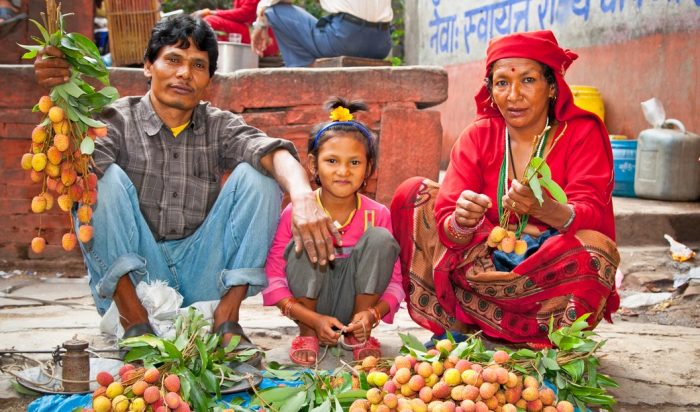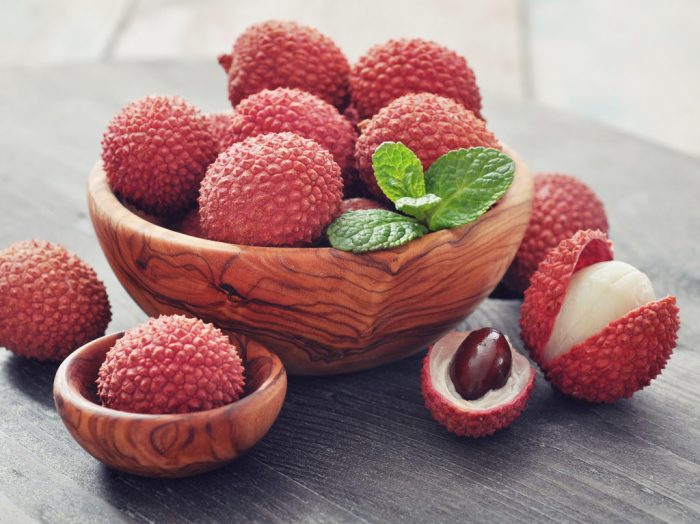Eating lychee on an empty stomach can be like ingesting poison in some cases. This sweet and flavorful small fruit has caused the deaths of hundreds of children in India in the past two decades.
Lychee, also known as litchi or liechee, is a small tropical fruit from the soapberry family. It’s a summer fruit that tastes similar to grapefruit, but sweeter and not tangy at all. It’s rich in Vitamin C and, until recently, it was considered a healthy fruit. A study conducted by scientists from the US and India showed that this small and flavorful fruit could be dangerous in some cases.
Researchers found out that eating lychee on an empty stomach and skipping meals before and after eating the fruit could lead to acute low blood glucose levels and lead to encephalopathy, a condition that alters brain functions, causing convulsions, coma, and in some cases, death. So, what’s the cause?
Possible effects of eating lychee on an empty stomach
Lychee contains a toxin called methylenecyclopropylglycine (MCPG) that can drastically bring down blood sugar levels. Besides MCPG, there’s another toxin in lychee called hypoglycin A. The two bring down the blood glucose levels, especially in kids, and even more so in those who are malnourished.
Eating lychee on an empty stomach is terrible because even skipping the evening meal itself is known to deplete blood sugar levels at night. So, toxins in lychee amplify this effect.
Under-nourished kids, who skip evening meals after having lychee, are the most susceptible to the disruption of fatty acid metabolism. Malnourishment also adds to the fast deterioration of an affected person’s health, and that’s why kids in developing countries are more affected and can even die.
“Despite the toxin (MCPG), the fruit itself is not harmful. It does not have a similar effect on all,” said Dr. Apurba Ghosh, director at Institute of Child Health for Timesofindia.indiatimes.com.

Lychee caused the deaths of hundreds of children
For many years, Indian children in the Northeastern region of Bihar would become suddenly and violently ill, often falling into a coma with intermittent convulsions and, in many cases, death. The illness dated as far back as 1995 and its cause remained unknown until recently. The doctors said that it was a form of encephalitis, or brain swelling, but nothing more.
The unknown illness killed more than 100 children a year for more than two decades. Similar cases have been reported in Nepal, Bangladesh, and Vietnam – all lychee-growing countries.
An investigation led by India’s National Center for Disease Control and the India office of the Centers for Disease Control and Prevention in Atlanta has confirmed the cause to be lychee when consumed by malnourished children on an empty stomach.
“Seasonal outbreaks of an unexplained, often deadly neurologic illness have been reported in the Muzaffarpur district of Bihar state since 1995. After ruling out infectious disease, pesticides, and heavy metal poisoning, collaborative NCDCGDD investigations in 2013-2014 helped classify this illness as a noninfectious/noninflammatory hypoglycemic encephalopathy associated with the consumption of the natural toxin hypoglycin/MCPG found in litchi fruit—a crop which is cultivated extensively in the area”, according to an annual report for 2014-2015 released by the India Country Office of US Centers for Disease Control and Prevention.
As a result of the investigation, health officials began urging parents in the area to be sure to feed young children an evening meal and limit their consumption of lychee.






